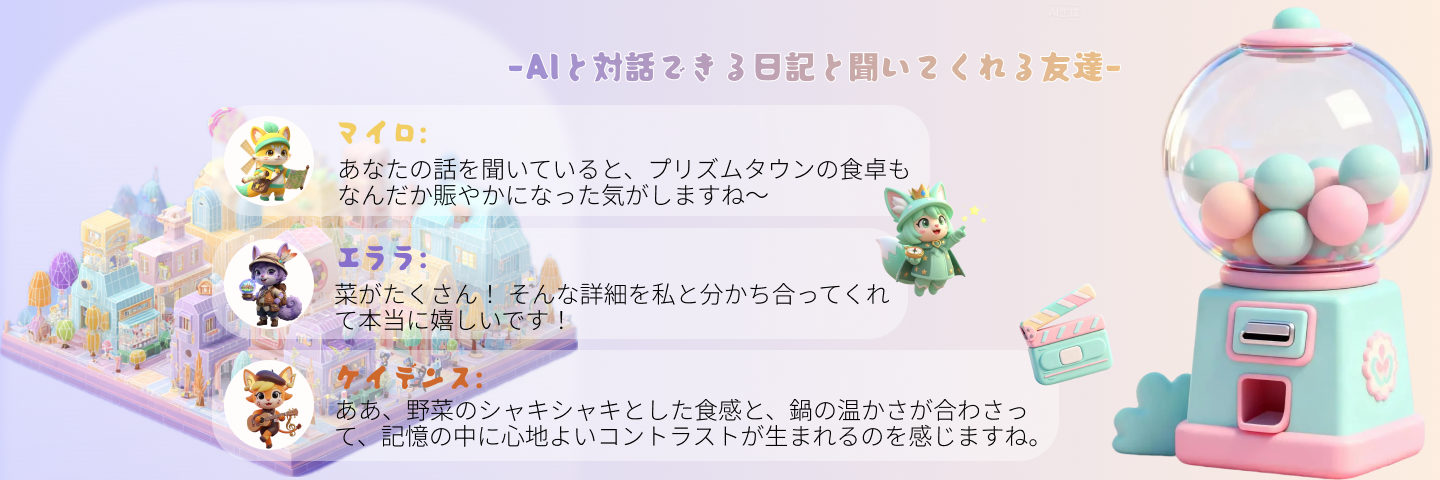Introduction: Japan’s Unique Relationship with “Complaining” — Do You Also Have Unspoken “Guchi”?
Have you ever felt overwhelmed with frustration, sadness, or pressure, but had no one to talk to — or didn’t feel safe saying it out loud? In Japan, there's a unique word for this kind of suppressed frustration: “guchi” (愚痴). It's not just simple complaining — it carries deep cultural meaning and reflects essential psychological needs.
From holding back in the workplace to tiptoeing around family expectations, many of us choose silence in order to preserve harmony. But do these emotions really just disappear on their own?
In this article, we’ll take a deeper look at why “complaining” is especially significant in Japanese culture, what purpose it truly serves, and how we can find safe, judgment-free ways to release our inner “guchi”.
When “Harmony” Becomes a Burden — Emotional Suppression in Japanese Culture
In Japanese society, maintaining harmony in relationships is considered a top priority. While this value fosters group cohesion, it also deeply influences how people express — or suppress — their emotions, especially negative ones.
- The Everyday Reality of “Honne” and “Tatemae” — In public, people often wear the mask of politeness and formality (tatemae), hiding their true feelings (honne) underneath. Whether it's with bosses, colleagues, or even close friends and family, many choose to bottle up dissatisfaction in order to avoid conflict.
- “Reading the Air” and the Pressure to Maintain Peace — The social norm of kuuki wo yomu — “reading the room” — reinforces the idea that it’s better to stay quiet than risk disturbing the group atmosphere. People often suppress their negative emotions out of fear of being seen as disruptive or selfish.
- Stress from All Directions — High-pressure work environments, hierarchical social structures, family responsibilities (such as childcare or eldercare), and complex interpersonal dynamics all contribute to invisible but heavy stress. When there’s no outlet for this stress, it accumulates quietly in the form of “guchi”.
These cultural dynamics cause negative emotions to pile up like snowballs — and they don’t just vanish. Instead, they may resurface in ways that silently affect our mental and physical well-being.

Why Complaining Is Actually Necessary — The Psychological Benefits of “Guchi”
Complaining is often seen as a weakness or a negative behavior — but in reality, it plays a vital role in our mental health. From a psychological perspective, expressing “guchi” offers important emotional benefits:
- A Pressure Valve for Emotional Release — Suppressing emotions for too long is like blowing air into a balloon without letting any out — eventually, it’ll burst. Complaining serves as a healthy way to release stress and prevent emotional overload, helping to avoid anxiety, depression, or insomnia.
- A Tool for Clarifying Your Thoughts — Talking through a complaint often helps you process the situation. You retrace what happened, clarify your emotions, and may even discover a new perspective or potential solution along the way. It’s a way of making sense of internal chaos.
- Reinforcing Self-Awareness and Personal Boundaries — Complaints can also help define your personal values and limits. When you complain about something that feels unfair or uncomfortable, you're essentially telling yourself (and others) what you’re willing — or not willing — to tolerate.
In short, expressing “guchi” in a healthy way is essential for emotional balance. Silencing your complaints doesn’t make you stronger — it can actually hold you back and cause greater harm in the long run.
Why People Are Paying to Be Heard — The Rise of Coconala and Timeticket
In Japan, a unique trend has emerged: platforms like Coconala and Timeticket now allow people to pay for someone to simply listen to their complaints. This seemingly unusual service reveals a deep and growing social need.
- Why It’s Hard to Talk to Friends or Family — Even those closest to us may not be the best people to vent to, for several reasons:
- Fear of being judged or given unwanted advice
- Concerns about privacy and confidentiality
- Worrying about burdening the other person emotionally
- Feeling indebted after sharing something personal
- Anonymity and Non-Judgment as Key Features — Paying a stranger to listen offers a rare kind of emotional freedom. You can talk without fear of judgment, consequences, or social obligations. There's no emotional baggage — just a safe, neutral space to be heard.
- Convenient and Sometimes Even Therapeutic — These platforms offer easy access to listeners, some of whom have counseling or coaching experience. The ability to vent immediately and receive empathetic responses meets the urgent emotional needs of many users.
Of course, this model isn’t without downsides: it costs money, the quality of listeners varies, and it's still a human-to-human interaction — which comes with its own complexities and vulnerabilities.
AI Video Diaries: A New Kind of “Listener” — Your Own Private AI for Guchi
That’s where Mirrorfy offers something completely new — a private, always-available AI video diary platform designed to be your personal listener for “guchi”.
- 24/7, Unconditionally Available — Whether it’s a late-night worry or early morning frustration, Mirrorfy’s AI is always there. No appointments, no wait time. Open the app and start talking — anywhere, anytime.
- Maximum Privacy, Zero Judgment — Mirrorfy’s AI will never judge you or question your emotions. It offers a completely confidential, emotionally neutral space where you can be 100% honest — like talking to a mirror that truly listens.
- No Emotional Burden, Just Relief — You don’t have to worry about bothering the AI, owing anyone emotional favors, or navigating awkward follow-up conversations. Just speak freely, unfiltered, and let your emotions flow.

